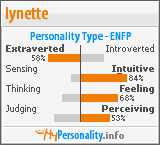The music of Black America: Marian Anderson
>> Thursday, November 13, 2008

Marian Anderson (February 27, 1897 -- April 8, 1993), was an American contralto, perhaps best remembered for her performance on Easter Sunday, 1939 on the steps of the Lincoln Memorial in Washington, D.C..
Anderson was born in Philadelphia, Pennsylvania, the daughter of John Rucker Anderson and the former Anna Delilah Rucker. Two sisters followed young Marian, Alice (later spelled Alyce) (1899-1965) and Ethel (1902-1990) who also became singers. Ethel Anderson was mother to James DePreist. Marian Anderson joined a junior church choir at the age of six, and applied to an all-white music school after her graduation from high school in 1921, but was turned away because she was black. The woman working the admissions counter replied, "We don't take colored" when she tried to apply. Consequently, she continued her singing studies with a private teacher. She debuted with the New York Philharmonic on August 26, 1925 and scored an immediate success, also with the critics. In 1928, she sang for the first time at Carnegie Hall. Her reputation was further advanced by her tour through Europe in the early 1930s where she did not encounter the racial prejudices she had experienced in America.
The famed conductor Arturo Toscanini told her she had a voice "heard once in a hundred years." In 1934, impresario Sol Hurok offered her a better contract than she had previously had with Arthur Judson. Hurok became her manager for the rest of her performing career.
In 1939, the Daughters of the American Revolution (DAR) refused permission for Anderson to sing to an integrated audience in Constitution Hall. The District of Columbia Board of Education declined a request to use the auditorium of a white public high school. As a result of the ensuing furor, thousands of DAR members, including First Lady Eleanor Roosevelt, resigned.
The Roosevelts, with Walter White, then-executive secretary of the NAACP, and Anderson's manager, impresario Sol Hurok, then persuaded Secretary of the Interior Harold L. Ickes to arrange an open air Marian Anderson concert on the steps of the Lincoln Memorial. The concert, commencing with a dignified and stirring rendition of "My Country, 'Tis of Thee" attracted a crowd of more 75,000 of all colors and was a sensation with a national radio audience of millions.
The concert mentioned above was held on Easter Sunday in 1939. Anderson was accompanied by the Finnish accompanist Kosti Vehanen, who introduced Marian to Jean Sibelius in 1933. Sibelius was overwhelmed with Anderson's performance and asked his wife to bring champagne in place of the traditional coffee. At this moment Sibelius started altering and composing songs for Anderson, who was delighted to have met a musician of Sibelius' magnitude, who felt that she had been able to penetrate the Nordic soul.
In 1939 Sibelius made a new arrangement of the song Solitude and dedicated it to Anderson. Originally The Jewish Girl's Song from his 1906 incidental music to Belshazzar's Feast, this later became the "Solitude" section of the orchestral suite derived from the incidental music.
In 1943, Anderson sang at the invitation of the DAR to an integrated audience at Constitution Hall as part of a benefit for the American Red Cross. By contrast, the federal government continued to bar her from using the high school auditorium in the District of Columbia.
On January 7, 1955, Anderson broke the color barrier by becoming the first African-American to perform with the New York Metropolitan Opera. On that occasion, she sang the part of Ulrica in Giuseppe Verdi's Un ballo in maschera.
In 1958 she was officially designated delegate to the United Nations, a formalization of her role as "goodwill ambassador" of the U.S. she played earlier, and in 1972 she was awarded the UN Peace Prize.
After an extensive farewell tour, she retired from singing in 1965. However, she continued to appear publicly, narrating Aaron Copland's Lincoln Portrait, including a performance with the Philadelphia Orchestra at Saratoga in 1976, conducted by the composer. Her achievements were recognized and honored with many prizes, including the Kennedy Center Honors in 1978 and a Grammy Award for Lifetime Achievement in 1991.
In 1993, Anderson died of heart failure at age 96 in Portland, Oregon at the home of her nephew, conductor James DePreist. She is interred at Eden Cemetery, in Collingdale, Pennsylvania, a suburb of Philadelphia.
Information source: Wikipedia




























2 comments:
I'm crossing over into camp ground!! I loved this post. Deep River just makes me tingle. Sigh.
Isn't this delicious? Yeah, "Deep River" is probably my favorite spiritual.
Post a Comment